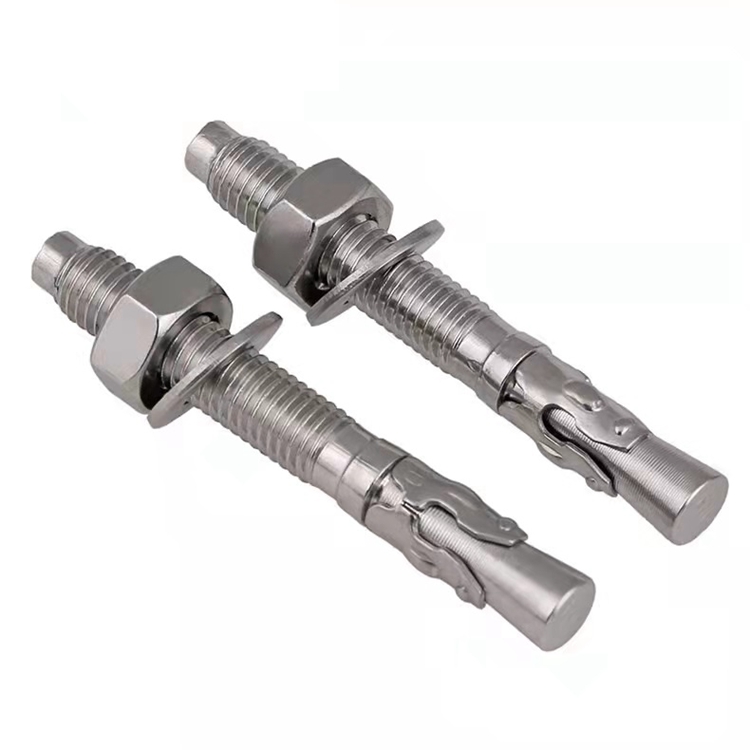high strength hex nut suppliers
Dec . 04, 2024 09:11 Back to list
high strength hex nut suppliers
The Importance of High Strength Hex Nuts and Reliable Suppliers
In the fast-paced world of manufacturing and construction, the demand for high-strength fasteners, including hex nuts, is continuously increasing. As integral components that hold various assemblies together, hex nuts play a crucial role in ensuring the integrity and safety of structures and machinery. This article will delve into the significance of high-strength hex nuts, the key factors to consider when selecting suppliers, and an overview of the industry landscape.
What Are High Strength Hex Nuts?
Hex nuts are fasteners that have a hexagonal shape, designed to fit onto bolts or screws, allowing for a secure connection between different components. High-strength hex nuts are specifically engineered to withstand greater loads and stresses compared to standard nuts. They are made from premium materials such as stainless steel, carbon steel, and alloy steel, often treated through processes like heat treatment to enhance their strength and durability.
These nuts are widely used in various applications including construction, automotive, aerospace, and machinery manufacturing. In critical applications where safety and reliability are paramount, using high-strength hex nuts is not just a choice but a necessity.
Why Speed and Reliability Matter
Selecting the right supplier for high-strength hex nuts is as crucial as choosing the right fastener itself. The construction and manufacturing industries depend on timely deliveries and dependable products to maintain project timelines and budgets. A reliable supplier can significantly affect a project's success by ensuring that high-quality fasteners are available when needed.
Factors to consider when assessing suppliers include
1. Quality Assurance Look for suppliers who comply with international standards (like ISO 9001) for manufacturing and quality control. Certifications can provide assurance that the products meet high-performance criteria.
2. Material Specifications Ensure that the supplier uses high-grade materials that comply with relevant standards (such as ASTM or SAE). This is essential to guarantee the structural integrity of the hex nuts in various applications.
high strength hex nut suppliers

3. Product Range A good supplier should offer a wide range of hex nuts with varying specifications, including sizes, grades, and coatings. This variety ensures that you can source the right nuts for specific applications without compromising on quality.
4. Customer Service Strong customer support is vital. You want to work with a supplier that is responsive to inquiries, offers guidance in product selection, and provides after-sales support.
5. Experience and Reputation Consider suppliers with a solid track record in the industry. An established reputation often suggests reliability and quality.
The Industry Landscape
The market for high-strength hex nuts has seen significant growth in recent years due to the expanding industrial and construction activities globally. Companies are increasingly recognizing the long-term cost benefits of investing in high-quality fasteners, which can reduce maintenance costs and the likelihood of failure.
In terms of geographical distribution, North America and Asia-Pacific dominate the market, driven largely by the growth in construction activities and automotive production. Emerging economies in Asia and Latin America are also witnessing increased demand for high-strength fasteners as infrastructure and manufacturing sectors expand.
Conclusion
High-strength hex nuts are essential components across various industries, providing vital connections that ensure safety and reliability. Selecting a dependable supplier is critical to sourcing the right fasteners that meet your needs. By focusing on quality, material specifications, product range, customer service, and the supplier's reputation, you can build a partnership that supports your projects’ success.
For companies involved in sectors where the stakes are high, investing in high-strength hex nuts and collaborating with reliable suppliers is not just an operational decision—it's a strategic imperative that can impact long-term performance and competitiveness in the marketplace. As the industry evolves, staying informed about suppliers and new technologies will ensure that your projects remain ahead of the curve.
Latest news
-
High-Quality Bolts for Lawn Mower Handle Supplier & Manufacturer
NewsAug.21,2025
-
Reliable Axle Nuts Supplier | High-Quality Automotive Parts
NewsAug.19,2025
-
Premium Wire Bolts Suppliers | Durable & Reliable Fasteners
NewsAug.18,2025
-
Leading Metric Wood Screw Companies & Manufacturers
NewsAug.17,2025
-
Top Wire Bolts Suppliers - Quality & Durable Fasteners
NewsAug.15,2025
-
Trusted Wire Bolts Company | Quality Fasteners Supplier
NewsAug.14,2025
